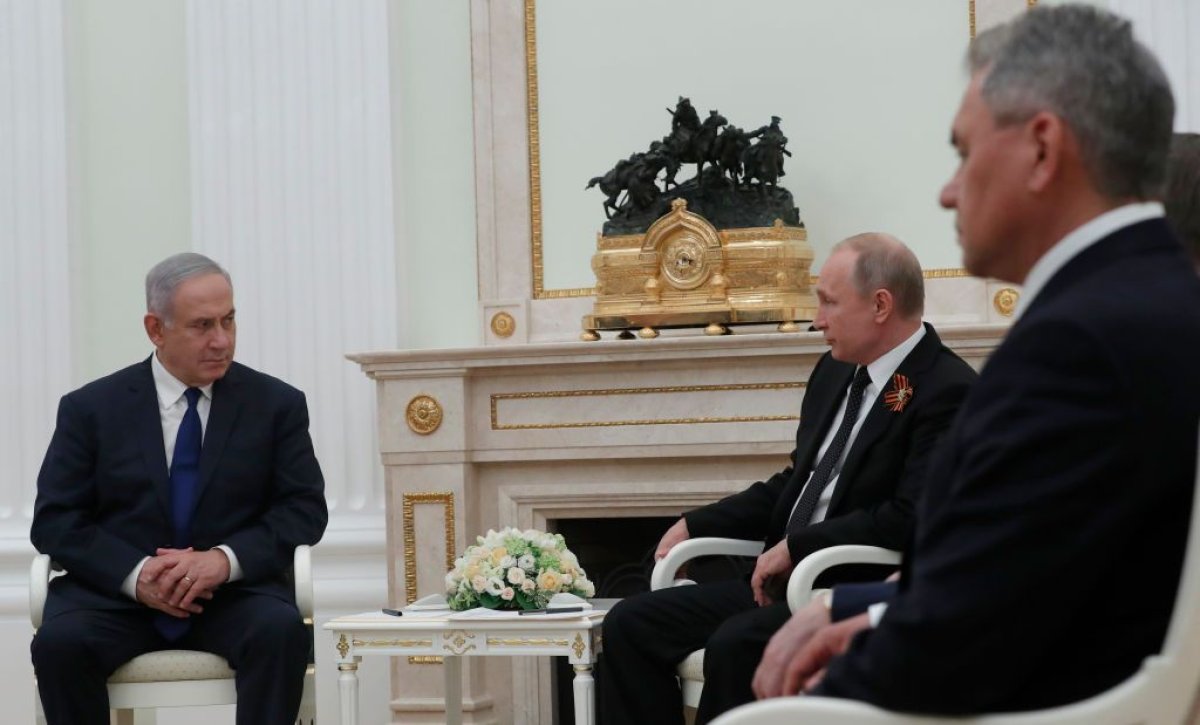Israel's Prime Minister Benjamin Netanyahu has said that Israel will continue to attack targets in Syria regardless of Russia's plans to transfer a new advanced air-defense system to the country.
Speaking on the phone with Russian President Vladimir Putin on Monday, Netanyahu warned that Moscow's decision "will increase the dangers in the region" as it is "transferring advanced weapons systems into irresponsible hands," Radio Free Europe reported. The Israeli leader also stated that his country will continue to strike targets in Syria it sees as a threat to its security and interests.
The call between the two leaders came after the Russian Defense Ministry announced Monday that it will equip Syria's air defense forces with "automated control systems only supplied to the Russian armed forces." It specifically referenced the S-300 surface-to-surface missile system, which is capable of taking down aircraft and cruise missiles.

Damascus currently relies on an older version of the system. In response to an Israeli bombing raid last week, Syria fired the defense system and accidentally shot down a Russian II-20 surveillance aircraft caught in the crossfires, killing 15. Moscow has pointed fingers at Israel, saying that the Israelis used the Russian aircraft as cover to confuse the Syrians.
The U.S. has also expressed concern about the Kremlin's decision to transfer to the new missile system to Syria.
"Any additional weapons being provided to the Assad regime risks an exacerbation of the conflict and an escalation of the humanitarian situation," Pentagon spokesman Army Colonel Kone Faulkner said in a statement to Newsweek.
Although Putin has referred to last week's incident as a "chain of tragic accidental circumstances," it raised tensions between Russia and Israel , and Russia has announced new security measures to protect its military personnel operating in the country.
Besides the new missile system, the Russians also plan to begin jamming radars of nearby warplanes, according to Radio Free Europe. Previously during the seven-year conflict, Russia had suspended plans of transferring the missile system to pacify Israel's concerns.
Despite increased tensions however, Netanyahu and Putin "agreed to continue the dialogue between the professional teams and the inter-military coordination via the military channels," the Israeli prime minister's office said on Twitter. Netanyahu also once again reiterated his "condolences" for the loss of Russian life.

Israel's principle concern in Syria is the presence of Iranian troops as well as Tehran-backed militia groups, such as the Lebanese militant group Hezbollah, which are openly hostile towards Israel. This summer, negotiations took place between Russia and Israel to push Iranian forces away from Israel's disputed Golan Heights border with Syria.
"As we took into account the Israeli concerns, we managed to attain the pullout of Iranian units 85 kilometers [about 53 miles] from the Israeli [-Syrian] border," Alexander Lavrentyev, Russia's presidential envoy to Syria, said at the beginning of August.
But Netanyahu reportedly said in July that Israel "will not allow the Iranians to establish themselves even 100 kilometers [62 miles] from the border." Meanwhile, Tehran and Damascus inked a new military cooperation deal late last month, which aims to see the continued presence of Iranian troops within the country.
Uncommon Knowledge
Newsweek is committed to challenging conventional wisdom and finding connections in the search for common ground.
Newsweek is committed to challenging conventional wisdom and finding connections in the search for common ground.
About the writer
Jason Lemon is a Weekend Editor at Newsweek based in Brooklyn, New York. Prior to taking on the editor role, Jason's reporting focused on ... Read more
To read how Newsweek uses AI as a newsroom tool, Click here.








